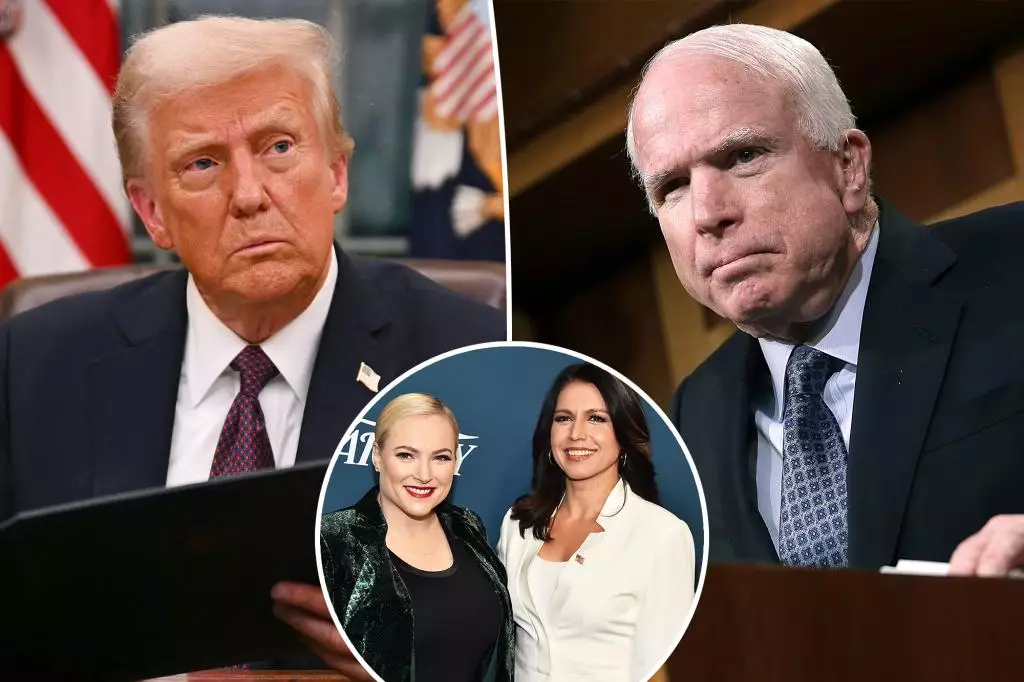The contentious relationship between Donald Trump and the late Senator John McCain has its roots in remarks made by Trump in 2015. During a campaign rally, Trump disparaged McCain’s status as a war hero by stating, “I like people who weren’t captured.” This declaration set the stage for an enduring clash between the two men, culminating in McCain’s refusal to support Trump during a critical vote related to the repeal of the Affordable Care Act. The animosity further deepened when McCain passed away in 2018 and Trump was not welcome at his funeral, which notably left the then-President feeling slighted, particularly over perceived gratitude not expressed for the state funeral arrangements.
In the wake of Trump’s statements and actions, Cindy McCain, John’s widow, expressed her lingering hurt regarding Trump’s hurtful comments, indicating that she may never fully recover from the emotional wounds. Meghan McCain, the Senator’s daughter and a prominent political commentator, took her father’s side vehemently. She launched a series of pointed critiques against Trump, labeling him as a “piece of sh*t, election-denying huckster.” Such vociferous condemnation illustrated the depth of feelings involved not only for the McCain family but also for many of Trump’s critics who viewed his behavior as disrespectful and indefensible.
However, the situation took a surprising turn with the appointment of Tulsi Gabbard in the Trump administration as Director of National Intelligence. Gabbard, an ex-Democrat and a friend of Meghan McCain—who even dubbed her the godmother to one of her children—became the center of a reconciliation process. The personal connection between Gabbard and Meghan seemingly provided a unique opportunity to mend fences within an otherwise fractured political landscape. Meghan’s active advocacy for Gabbard’s position included engaging with senators in the administration and publicly defending her on forums like “Hannity,” indicating a strategic pivot in her approach towards Trump’s administration.
As Meghan’s efforts bore fruit, sources revealed that the White House extended its gratitude towards her for successfully garnering support from moderates for Gabbard. This acknowledgment marked a significant moment in the reconciliatory process, signifying an unexpected thaw in the icy relations that had characterized Trump and McCain’s interactions. Meghan and her husband, Ben Domenech, received invitations to Gabbard’s swearing-in ceremony at the Oval Office, an invitation that symbolized a certain level of acceptance and newfound respect in the complex political tapestry.
In a striking turn of events, the bitter feud appears to be taking a more civil trajectory, largely driven by Meghan McCain’s tireless advocacy for Gabbard. The once unbridgeable divide between the McCains and Trump seems to soften amid evolving political dynamics, reframing how personal relationships can lead to unexpected resolutions in the political arena. The trajectory of this feud is an intriguing case study in how personal connections and engagement can lead to broader, unanticipated reconciliations even in the often hostile environment of American politics.

